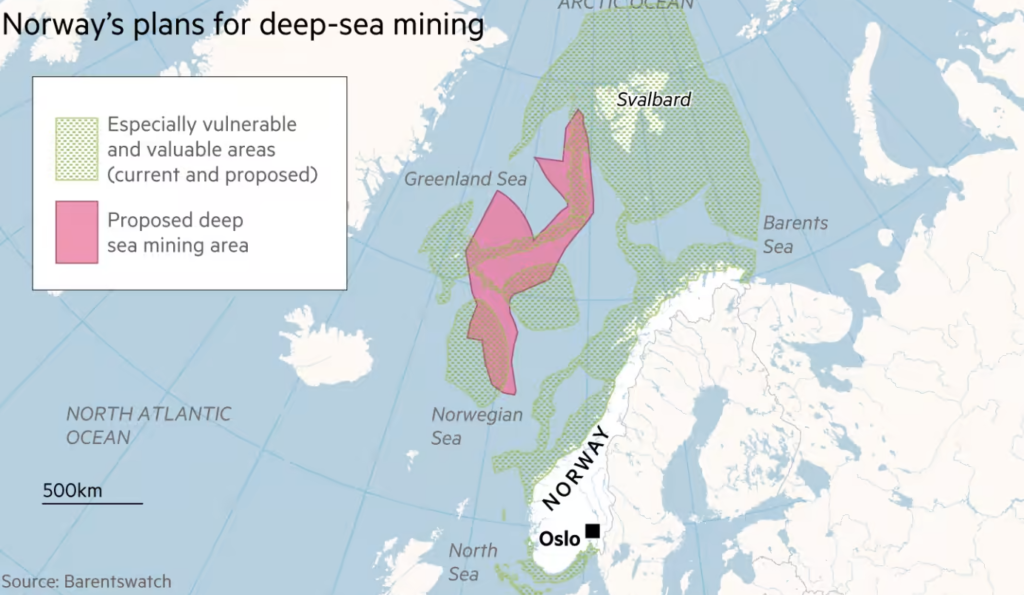According to sources, Norway’s government plans to open a large area of the ocean for deep-sea mining to extract battery metals from the sea floor. The proposal, which faces opposition from fishing businesses and environmentalists. The area under consideration contains significant copper reserves and other metals used in electric car batteries, challenging China’s dominance in the supply chain.

The potential risks of deep-sea mining for environmentalists are, among others:
- Environmental Impact: Deep-sea mining has the potential to cause significant harm to marine ecosystems. The extraction process involves using large machines and vehicles that can disrupt and destroy fragile habitats on the seafloor. The plumes of sediment stirred up during mining operations can smother marine life and affect species that rely on the seabed for their survival.
- Biodiversity Loss: The deep sea is home to a wide range of unique and poorly understood species that have adapted to extreme conditions. Mining activities have the potential to cause the loss of biodiversity and damage deep-sea ecosystems that may take centuries or even longer to recover.
- Unknown Consequences: Our understanding of the deep sea is still limited, and the potential long-term impacts of deep-sea mining are not fully known. The complex interconnectedness of deep-sea ecosystems makes it difficult to predict the full extent of the environmental consequences. Some scientists argue that the precautionary principle should be applied until more research is conducted.
- Mineral Rights and Governance: Deep-sea mining takes place in international waters, beyond the jurisdiction of any single country. There is ongoing debate and concern about how mineral rights are allocated, who benefits from mining activities, and how the profits are shared. The lack of a comprehensive legal framework and governance structure for deep-sea mining adds to the controversy.
Even though the BBNJ treaty does not have any legal right to set rules and regulations for mining at sea. parties of the International Seabed Authority ISA and BBNJ will be obligated to cooperate and coordinate with the ISA to ensure the Environmental Impact Analysis EIAs and provisions for transparency are carried out consistently within areas beyond natural jurisdiction. Thus, setting up a number of institutional mechanisms but also the scientific-technical body and mechanism for cooperation regarding the subject.
The dispute with other nations, including Russia, the UK, and the EU, centers around Norway’s exclusive mining rights near Svalbard. Proponents argue that deep-sea mining is crucial to meet the growing demand for minerals, while environmentalists call for caution and a pause to assess the potential risks to ecosystems. Norway’s track record in responsible resource extraction and its leadership role in the Arctic makes it a potential pioneer in the industry, according to experts.
Sources: High Seas Alliance, The Financial Times, High North News, Mining Digital, Barents Watch, Environmental Justice Atlas.

